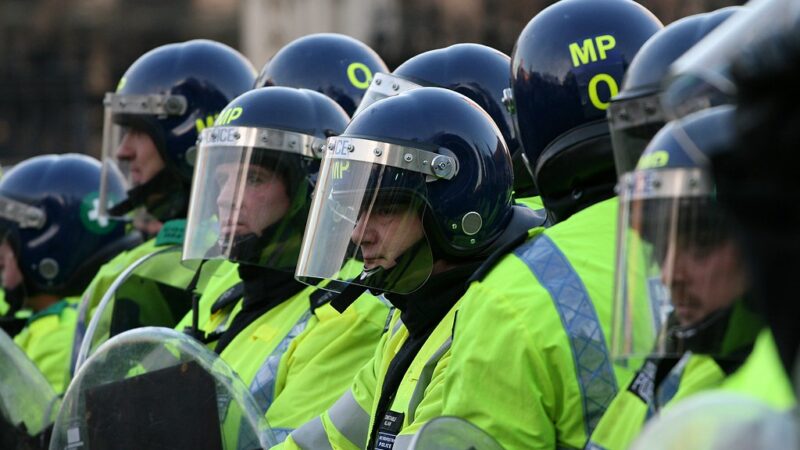When the police can break the law with little oversight, all campaigners should be concerned.

The more I listen to the debate on the spycops Bill – or the Covert Human Intelligence Sources Bill (Criminal Conduct), as it’s formally called – the weirder the legislation seems.
On the second day of the debate in the Lords, I realised that if police officers want to prevent law-abiding but lively protests that they consider a threat to ‘public disorder’, they could authorise an undercover police officer to break the law, for example breaking a window.
They would have to consider this ‘reasonable and proportionate’ – but our police are very keen on keeping the peace and it’s unlikely they will have to justify any of this in court, so authorising a crime to stop a legal protest might meet their test.
After all, that is the joy of self-authorisation for a police service with a forty year tradition of targeting campaigners and anti-establishment politicians.
I say ‘unlikely’ to be challenged in court, rather than ‘never’, as court challenges do emerge as a possibility, according to the Home Office Minister. The reason the government says we don’t need to specify crimes that undercover police or their (possibly criminal) informants should not commit, is because the Human Rights Act covers it all.
Canada, the USA and other countries have prohibitions against rape, torture and murder written into their legislation on undercover operatives.
Our House of Lords Minister rejected amendments that would do the same for our country, arguing: “The Human Rights Act already provides these limits and the amendments that replicate the limits in Canadian legislation do not prohibit any criminal conduct which is not already prohibited by the ECHR and HRA, as encompassed by the Bill.”
The government says that gangs and terrorists could ‘test’ new recruits by asking them to commit one of the crimes, such as torture, that are listed in the amendments. The circular logic of the government’s case is that we can’t specify prohibited crimes in the legislation, but it’s okay because those crimes won’t be acceptable under this legislation. There are two problems with this logic.
First is the assumption that the gangs, terrorists etc, won’t google Hansard, or this article, or any other media coverage of how this legislation actually works, and what undercover operatives are not meant to do.
Secondly, that a detailed understanding of the European Human Rights legislation relating to what crimes can and can’t be committed is going to be clear to everyone involved. Over 500 senior police officers and numerous other organisations will need to direct the thousands of undercover officers, public servants, informants and criminals who are being used as covert sources.
All of these decisions will be taken in stressful and dangerous operations where everyone is striving to get a result. Mistakes are inevitable. Mistakes will be covered up. Secretive police units, just as the Special Demonstration Squad did, will go rogue. Only the tip of the legal iceberg will actually be tested against the Human Rights Act, in the few cases that ever make it to court.
Ironically, because of the previous abuses by undercover police, the one thing that is definitely illegal is forming a sexual relationship with someone who you have under surveillance. The Minister revealed the Home Office view in her defence of the new spycops Bill.
“I do not know whether police officers were not told that it was illegal, and the inquiry is clearly establishing the ins and outs of that. But it was not acceptable and it was never lawful, and it cannot be authorised under this Bill. I hope that I have made that very clear.“
This will come as news to those women who had to fight the Met Police in the courts for many years in order to get their claims officially validated. None of those officers has been prosecuted. Few even faced disciplinary action. The police have never given any indication that they are investigating all officers who did this (not just those identified by the women). If not, why not?
The Minister said this in order to reassure highly critical peers, but if it needs to be made this explicit, it’s crystal clear that the if the police act illegally they won’t get prosecuted.
Everything I’ve heard during this debate has confirmed that the spycops Bill is dangerous and must be opposed by all who want a politically neutral police service that doesn’t undermine our democracy.
Jenny Jones is a Green Party member of the House of Lords.
Left Foot Forward doesn't have the backing of big business or billionaires. We rely on the kind and generous support of ordinary people like you.
You can support hard-hitting journalism that holds the right to account, provides a forum for debate among progressives, and covers the stories the rest of the media ignore. Donate today.



